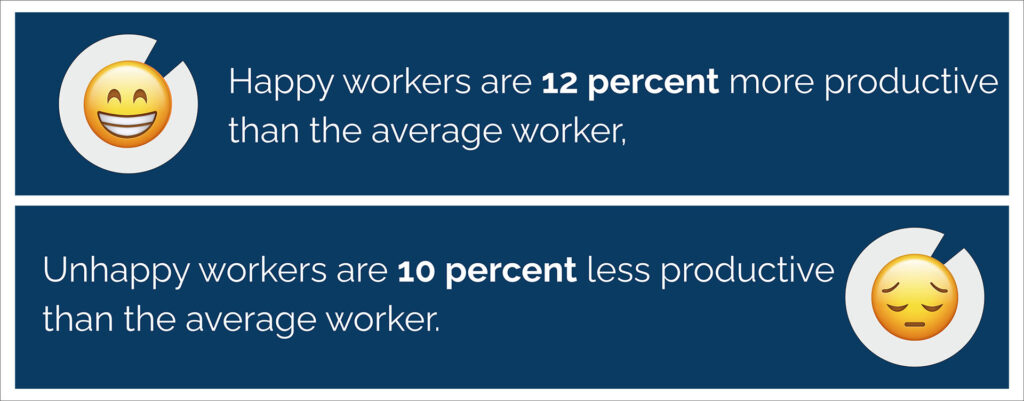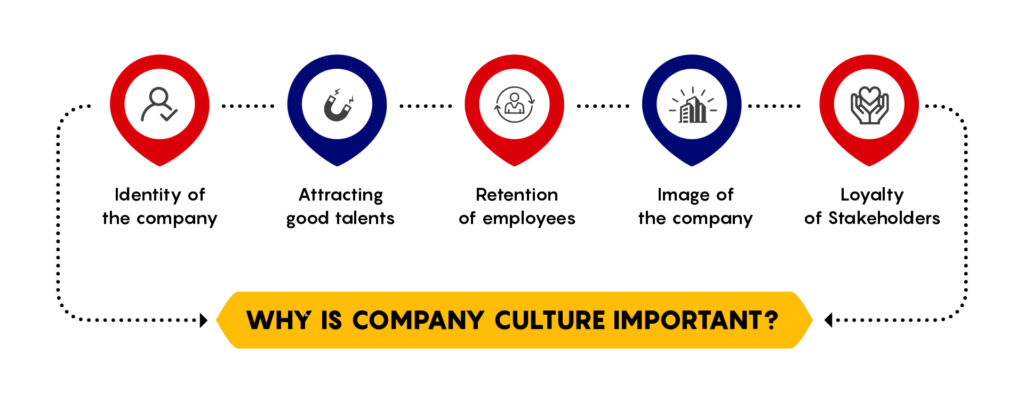Let Us Start With What Is Culture
Before we dive into the discussion about company or corporate culture, let us touch upon what is culture. All of us have an abstract idea about culture though at times we struggle to define or articulate it. Cambridge dictionary defines culture as the way of life, especially the general customs and beliefs, of a particular group of people at a particular time.
The word “culture” derives from a French term, which in turn derives from the Latin “colere,” which means to tend to the earth and grow, or cultivation and nurture.
Culture is often considered as the way of life of the people who have been inhabiting a certain place for a long period of time. In other words, culture is the heritage and legacy of social norms, ethical values, traditional customs, belief systems, religions, languages, art forms, literature, cuisine, family system, political systems, artifacts, agricultural systems, trade, science, medical practices, festivals, weddings, technologies and anything that matter to and effect the way of life of people in a place, region or country that they inherited over centuries and millennia.
If we come home, India is a diverse country where people speak in different languages, dress differently, follow different religions, eat different food, celebrate different festivals, conduct weddings in diverse forms, have varying political affiliations but certain attributes like nationalism and patriotism bind them together.
Likewise, every country or region in the world has its own culture which differs widely in some cases but certain factors like, say, the need for protection of environment, avoidance of war, providing helping hand in the times of disasters etc. bind the human race as a whole across the globe, if we can call these elements of culture.

‘‘
Many companies like Amazon, Google, Flipkart give more weightage to cultural fit more than to the skillsets in their hiring process.
Company or Corporate Culture Is Not Stand-Alone
The importance of (corporate) culture can be understood from the words of Peter Drucker that ‘culture eats strategy for breakfast’. In sync with the generic culture, corporate culture can also be defined as the way of life at any company in reference.
A company is one of the building blocks that make up humanity as a whole. Culture differs at various levels and layers. Human race as a whole can be said to have certain cultural elements in common. When we break it down, we have culture at various levels of, say, continent, country, state or county or region within a country, village or town, family or individual family unit or even individual.
Corporate culture is the collection of values, behaviours, beliefs, ethics and attitudes that characterise a company and guide its practices of interactions and relationships within the company and with the external world, particularly stakeholders. It defines how the company deals and behaves with its various stakeholders like employees, investors, vendors, customers, government and society in general.
Like there is no universal culture applicable in its entirety to all human beings, corporate culture can also be distinguished from each other depending on the country or region the company operates in, the people who founded it and the attributes of those who are the helm of affairs, the industry they are in, among many other factors.
It is to be kept in mind that you cannot just copy and paste the original cultural statement as it is if you want to go pan India or multi-national. You may have to make some adjustments to the core cultural ethos to be adaptable to the regional culture. Needless to say, that the core culture of the company must still remain constant and uniform across the regions in its broader objective.
The well-being and reputation of the company and its employees are influenced in a big way by its culture. Most organizations articulate its culture in its mission statement or vision statement. Elements of corporate culture include the organization’s physical environment, human resource management practices, work culture, and work habits, customer, supplier and investor management.
Corporate culture is also reflected in the degree of emphasis placed on various defining elements such as hierarchy, process, innovation, collaboration, competition, community involvement and social engagement.
Many companies like Amazon, Google, Flipkart give more weightage to cultural fit more than to the skillsets in their hiring process. This is because they are sure the employees with a certain minimum background and attributes can be trained on the hard skills but cultural fit is more important for them to pursue and maintain their corporate culture uninterruptedly.
There are very large companies who keep growing in financial strengths where candidates are not very keen on joining or employees want to find another employer. There are also companies which don’t pay well or big in size but attract candidates because of their robust cultural environment.
This is not just about employees, but of other stakeholders too. I have hands-on experience of vendors willing to extend credit periods more than their usual terms because they have trust in and want to be associated with a particular company. The same is true of customers. Even government authorities like Income Tax take a differential view of the assessee companies based on their track record of fair play and trustworthiness. These all come from the corporate culture.
Fair employee policies related to appraisals, salary increase, leave, training, opportunity to learn and grow, flexible working terms etc., team culture, management attitude, proper two communication processes, employee meets, entertainment, taking care of the mental and physical well-being are all important cultural factors that differentiates one company from another.
It is compulsory for companies in India above certain thresholds to participate in CSR initiative. There are some guidelines on how to spend amounts on CSR. However, a company culture is reflected in the way the companies do this. There are companies which do this for the sake of complying with the regulations but there are companies which do this for the benefit for the society in various forms such as environment protection, upliftment of weaker sections of society, adding to public facilities like toilets and so on. Such initiatives enhance the name and brand of the company in the society that comprise all the stakeholders of the company including prospective customers.
‘‘
63 percent of employees are not engaged at work and 24 percent are actively disengaged, leaving a mere 13 percent of workers who are engaged in the work that they do.

Company Culture Is Important, No Debate on It
Corporate culture has always been there in every company, whether knowingly or unknowingly, whether be good or bad, like any culture at any level in the society but was not consciously looked at and given its due importance until recently. The times have changed and all those stakeholders who deal with a company accord high weightage to it. It is not any more the buzz words inserted in mission and vision statements which many founders don’t even remember after some time.
Corporate culture is more visible and deliberate now. The company brand has its culture inherent in it in a larger proportion. However, I’d argue that corporate culture was never really overblown, and is actually becoming even more important as the modern workplace continues to evolve.
There are clear benefits to having a strong, unified company culture underlying your business’s operations. Some of them:
Identity of the company
Corporate culture contributes to the identity and values of your company. Employees, customers, suppliers and other stakeholders identify the culture of the company and deal with them accordingly. It’s a good way to set and maintain the direction of your employees, and without it, it’s hard to keep your company’s values coherent. The founders or promoters or management set the tone for the culture in the company and it cannot be revisited and changed as and when needed.
Attracting good talent
Good corporate culture attracts best talent to a company. The high salary and perks themselves are not enough to attract best talents, particularly from the new generation. They look to the culture of the company along with or even over the CTC and perks. This is also true for customers, vendors and even investors. There many ways candidates can get to know about the culture and environment of prospective employers through search engines, and company review platforms like Glassdoor, Indeed etc.
Retention of employees
Attracting best talents is not enough, retaining them is more challenging. A strong company culture attracts better talent and, more importantly, retains them for long. When people feel like they belong to an organization, they’re more likely to stick around for the long term. That means lower turnover, fewer new hires to deal with, and better chemistry among your team. ESOP or Equity compensation, for example, are some ways to make employees feel inclusive and be part of the company.
Image of the company
We all have a tendency to identify certain ethos with the company brand. Company brand reflects not just its market share, quality of product and service, market cap, and other business metrics but its culture too to a great extent. Corporate culture also adds to your brand identity. If you treat your employees well and have a fun-loving corporate atmosphere, your customers will see you as a fun-loving, generous brand. Depending on your target demographics, that could be a major boon for sales and customer loyalty.
Loyalty of stakeholders
This is one important benefit often overlooked in the discussion of corporate culture. A company having good culture keeps its vendors, customers, investors and other stakeholders loyal to the company. They will extend a helping hand to such companies in their need of the hour. Culture helps enhance the image and loyalty of all stakeholders of a company.
Culture is very, if not more, important for small and new businesses, many entrepreneurs of start-ups quite naturally tend to take on a great deal of responsibility themselves. However, when the company grows and adds employees, the authoritarian, concentrated management style that the business owner practiced successfully in a very small company can become detrimental.
Millennials are the generation driving the workplace changes of the near future. If you cannot attract millennial talent, the growth of your company may stagnate, and you could eventually hit a talent shortage. That said, millennials desire a strong company culture more than anything else when deciding who to work for. If you don’t have a strong or appealing company culture, you’re going to start losing the game.
Work-life balance is of paramount importance to the new generation workers. I will mention one example of how companies address this expectation; Amazon India Head have recently asked all its employees not to reply or respond to any emails or calls from 6 pm to 8 am.
It’s also worth noting that the modern start-up economy has added some interesting variables to the entrepreneurial community. They have virtually unlimited digital resources to build companies-and those companies have the potential to take off or fail relatively quickly. This increases the need for differentiation in the market, especially in competitive industries, and forces entrepreneurs to find a sticking point for workers who may otherwise leave you after a short-term assignment.
Some facts and statistics to support why corporate culture is important
A Columbia University study shows that the likelihood of job turnover at an organization with high company culture is a mere 13.9 percent, whereas the probability of job turnover in low company cultures is 48.4 percent.
Likewise, the Department of Economics at the University of Warwick found that happy workers are 12 percent more productive than the average worker, and unhappy workers are 10 percent less productive.
Statistics from New Century Financial Corporation indicate that companies with happy employees outperform the competition by 20 percent, earn 1.2-1.7 percent more than their peer firms, and are 2.1 percent above industry benchmarks. Happy workers are also more likely to solve difficult problems faster.
A 142-country Gallup report on the “State of the Global Workplace” shows that 63 percent of employees are not engaged at work and 24 percent are actively disengaged, leaving a mere 13 percent of workers who are engaged in the work that they do.
An often-cited example of good company culture is Google. Though very large in size, people who work there describe it as having a small-company feel where no one hesitates to “spike a volleyball across the net at a corporate officer.”
But the culture of a company is not just about whether you’re allowed to chuck balls at your boss – it’s also determined by what the company stands for and how it treats others. Google gives back to the community as well as to countries around the world in the form of financial aid, restoring public parks, and Googlers volunteering their time.
Taking its cue from 3M, Google started its own “20% Time” program which resulted in the creations of Gmail, Google Earth, and Google Talk, to name a few. Similarly, Hewlett-Packard Labs gives its employees personal creative time during which new products have been created, such as clear bandages and optical films that reflect light which are both on the market.




